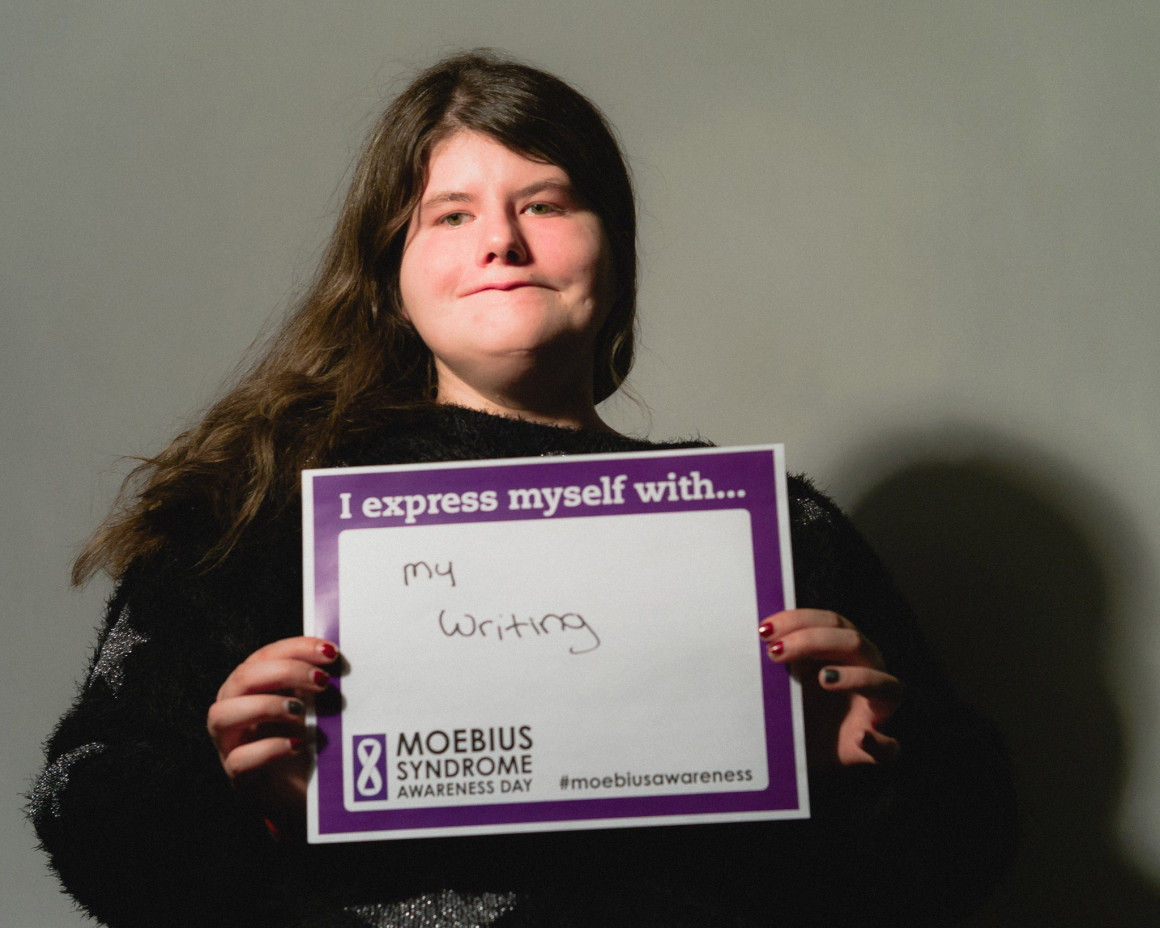
U of C student at forefront of awareness campaign for rare neurological disorder
By Fabian Mayer, January 19 2016 —
Kelsey Ferrill’s face is paralyzed. Smiling is difficult for her, alongside other things like giving presentations.
The third-year University of Calgary communications student suffers from Moebius syndrome, an extremely rare congenital neurological disorder characterized by facial paralysis. The disorder makes it nearly impossible to do things many people take for granted.
“What if you weren’t able to smile or move your face at all?” Ferrill said. “It’s something that people don’t think about.”
She’s had the condition her entire life, and has become accustomed to people treating her differently.
“It was [difficult] when I was younger but now it doesn’t tend to bother me as much,” Ferrill said. “I don’t really care what people think anymore. I just do what I can to get through what I’m doing.”
Ferrill transferred to the U of C from SAIT this year. She is aware of only 10–15 people in all of Canada who have Moebius syndrome.
“It’s something that a lot of people would never hear of. Even a lot of doctors have not heard of it,” Ferrill said.
Treatments for Moebius syndrome are limited and include something known as smile surgery, where muscle from the patient’s thigh is implanted into their face. The surgery, which Ferrill has undergone, allows her to smile slightly.
Ferrill first became active in raising awareness for Moebius syndrome after attending a semi-annual conference six years ago.
“For two or three days you’re surrounded by people who know exactly what you go through,” Ferrill said.
In the last two years, Ferrill has hosted Moebius awareness days at SAIT with hundreds of participants.
She believes it’s difficult for people to imagine what it would be like to be unable to make facial expressions or have difficulties speaking. For her, everyday tasks like talking on the phone are much more complicated.
But Ferrill says one of the biggest difficulties is when people make assumptions about her.
“When you have a physical difference, people tend to treat you different,” Ferrill said. “For me, people assume that there’s a mental capacity issue too. People assume I have mental issues just because of the way I talk.”
Changing those perceptions is one of the reasons Ferrill began raising awareness about Moebius syndrome.
“I just want people to know that if you see someone who looks different, don’t assume things — don’t assume that there’s a mental disability as well,” Ferrill said. “Go talk to them and get to know them. People can learn something from people with disabilities.”
Ferrill hopes to host a Moebius syndrome awareness event at the U of C before completing her degree. After graduating, she plans to put her communications degree to use by working for a non-profit that advocates for people with disabilities.
Jan. 24 is Moebius syndrome awareness day.
